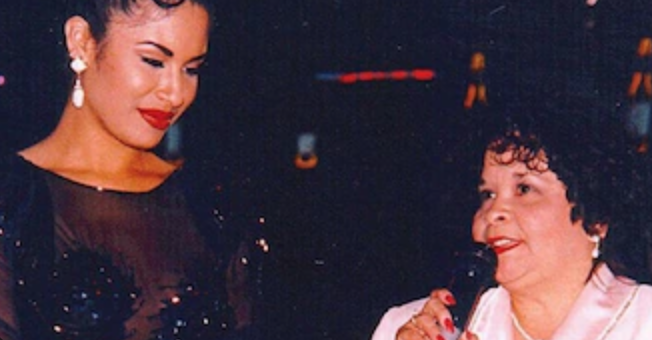Yolanda Saldivar, the woman convicted of murdering beloved Tejano music star Selena Quintanilla-Pérez in 1995, will soon have her case reviewed for parole. The parole panel in Texas is set to consider Saldivar’s eligibility for release in late March 2025, marking 30 years since the tragic shooting that shook the Latin music world.
Selena, known for her powerful voice and groundbreaking success in the Tejano music genre, was fatally shot by Saldivar at a Days Inn in Corpus Christi, Texas, on March 31, 1995. At the time of the shooting, Saldivar had been the president of Selena’s fan club and managed the singer’s clothing stores. However, just weeks before the murder, Saldivar had been removed from her positions and cut off from the business accounts after Selena discovered discrepancies in the financial records.
Saldivar’s motives for the crime were said to stem from this confrontation, and prosecutors claimed that Selena was shot in the back by Saldivar as she was attempting to leave the motel room. Severely wounded, Selena ran to the lobby and told hotel staff that Saldivar had shot her before collapsing. Tragically, Selena died later that afternoon at the age of 23.
Advertisement
After a nine-hour standoff with law enforcement, Saldivar was arrested and later convicted of first-degree murder. She was sentenced to life in prison and is currently serving her sentence at the Mountain View Unit in Texas.
Now onto the parole review process.
Saldivar, now 64, is eligible for parole on March 30, 2025. Under Texas law, inmates become eligible for parole once they have served a specified portion of their sentence and the offense is considered parole-eligible. The parole review process begins about six months before an inmate becomes eligible for parole, and the case will be heard by a panel around that time.
Trial officials and registered victims, including Selena’s family, will be notified of the parole review, allowing them to submit their input on the decision. As part of the process, an Institutional Parole Officer will interview Saldivar, and a file with all relevant details will be sent to the voting parole panel for consideration. If Saldivar is granted parole, she could be released no earlier than March 30, 2025. However, if the panel denies parole, a new review date will be set, typically between one and five years from the decision.
The lasting impact of Selena’s murder.
Selena was at the height of her career when she was killed, having achieved major milestones, including winning a Grammy in 1994 for Best Mexican-American Album for Live. Her album Amor Prohibido produced several number-one hits and was nominated for a Grammy. The year after her death, Selena’s crossover album Dreaming of You topped the Billboard 200, further cementing her legacy as one of the most influential Latin artists of all time.
Her murder not only devastated her fans but also marked a tragic turning point for the Latin music industry, where Selena had been an inspiring force for women and artists of all backgrounds.
Saldivar has appealed but faced many legal challenges.
Saldivar has filed several appeals over the years, all of which have been unsuccessful. In her 1998 appeal, her attorneys argued multiple points of error during the trial, including claims of racial discrimination in jury selection, the admission of prejudicial evidence, and the denial of motions for a mistrial and a new trial. More recently, in 2019, Saldivar filed an appeal based on the assertion that prosecutors had withheld key evidence—specifically, a pair of white shoes and a black baseball cap—that could have supported her defense. The court rejected her argument, and the appeal was dismissed.
Despite these setbacks, Saldivar’s legal team continues to challenge her conviction, but to no avail.
What lies ahead for Saldivar?
As Saldivar’s parole review approaches, the question of whether she will be released remains uncertain. Selena’s family, fans, and the larger Tejano music community are likely to continue voicing their opposition to Saldivar’s release, given the brutality of the crime and the lasting impact of Selena’s death. Whether the parole panel will consider these factors, along with Saldivar’s behavior during her imprisonment, will determine whether she will be granted the opportunity to walk free after three decades behind bars.
The upcoming parole hearing is a significant moment in the case, drawing attention to the ongoing legacy of Selena and the unresolved pain felt by her family and fans. As March 2025 approaches, all eyes will be on the Texas parole board as they decide whether or not Yolanda Saldivar will be granted parole for the murder of one of the most beloved stars in Latin music history.

